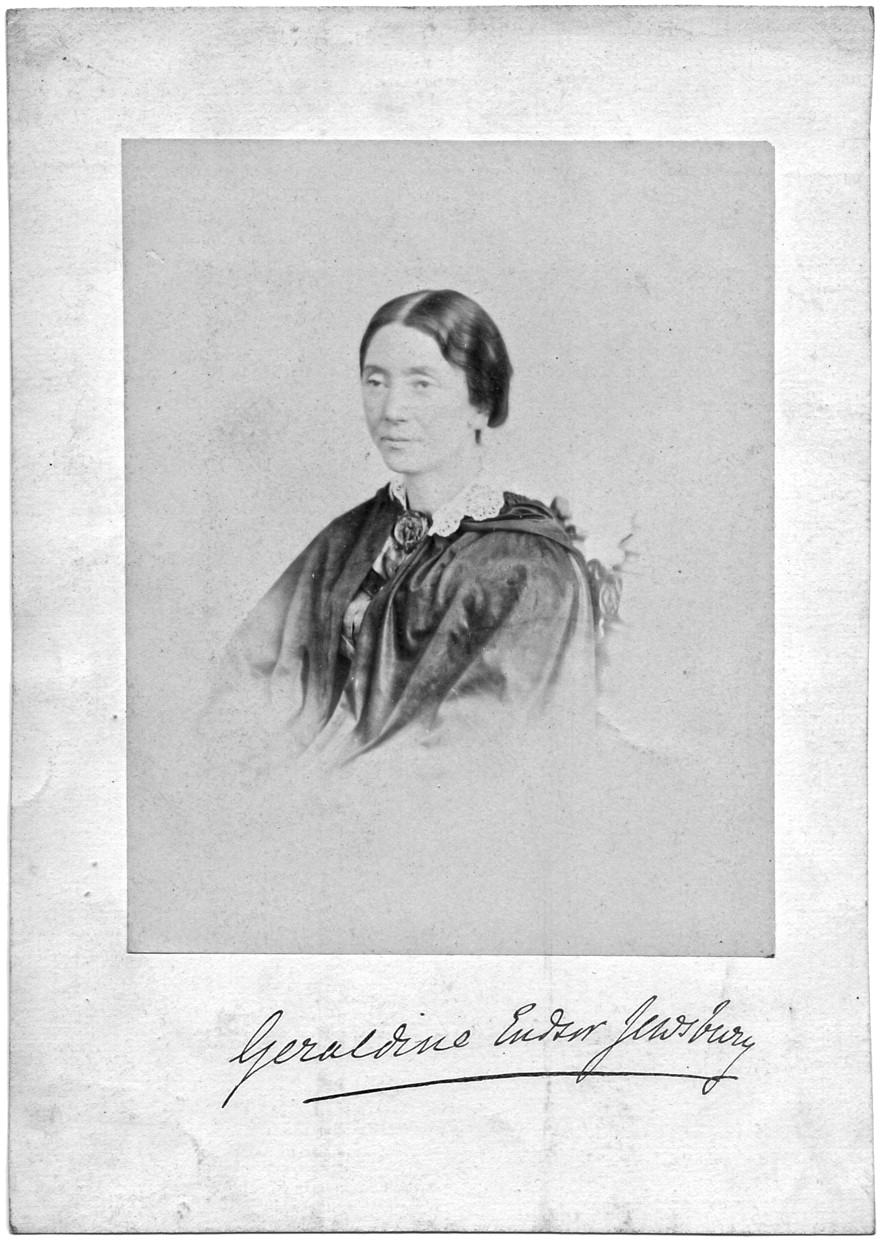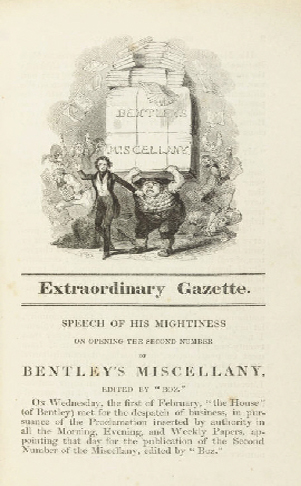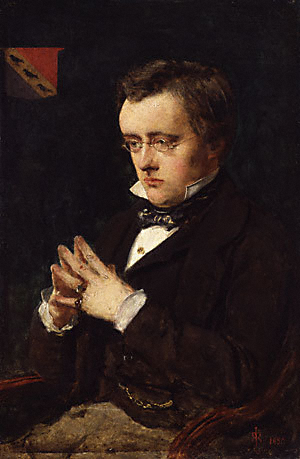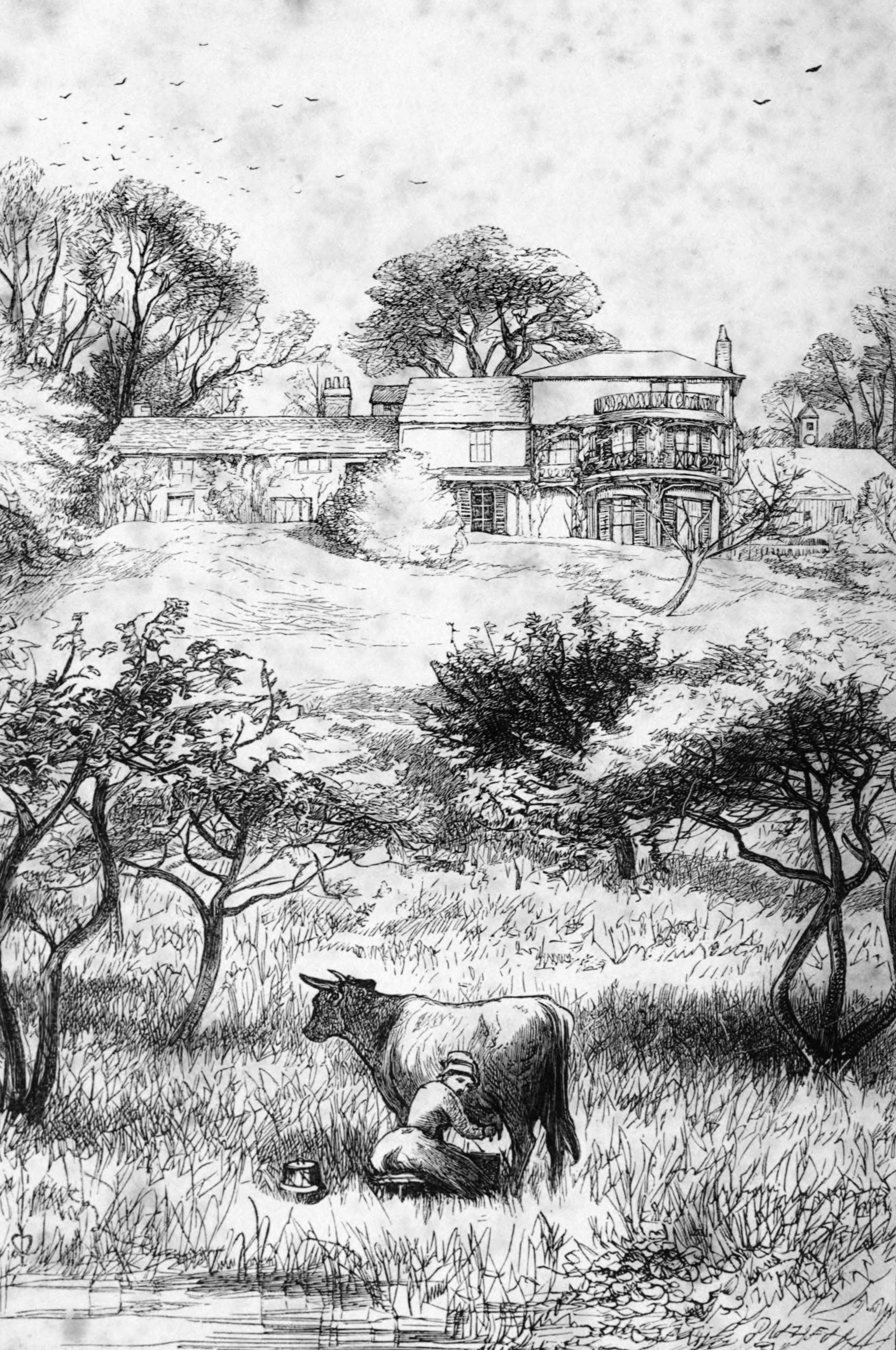|
Geraldine Jewsbury
Geraldine Endsor Jewsbury (22 August 1812 – 23 September 1880) was an English novelist, book reviewer and literary figure in London, best known for popular novels such as ''Zoe: the History of Two Lives'' and reviews for the literary periodical the ''Athenaeum''. Jewsbury never married, but enjoyed intimate friendships, notably with Jane Carlyle, wife of the essayist Thomas Carlyle. Jewsbury's romantic feelings for her and the complexity of their relations appear in Jewsbury's writings. She tried unsuccessfully to encourage her close friend Walter Mantell to start a new life as an author after his disagreement with the New Zealand government over Maori land rights. Family and education Jewsbury was born at Measham, Derbyshire (since 1897 Leicestershire), the daughter of Thomas Jewsbury (died 1840), a cotton manufacturer and merchant, and his wife Maria, née Smith, (died 1819). Her paternal grandfather, Thomas Jewsbury Sr (died 1799), had been a surveyor of roads, an engineer ... [...More Info...] [...Related Items...] OR: [Wikipedia] [Google] [Baidu] |
Geraldine Jewsbury
Geraldine Endsor Jewsbury (22 August 1812 – 23 September 1880) was an English novelist, book reviewer and literary figure in London, best known for popular novels such as ''Zoe: the History of Two Lives'' and reviews for the literary periodical the ''Athenaeum''. Jewsbury never married, but enjoyed intimate friendships, notably with Jane Carlyle, wife of the essayist Thomas Carlyle. Jewsbury's romantic feelings for her and the complexity of their relations appear in Jewsbury's writings. She tried unsuccessfully to encourage her close friend Walter Mantell to start a new life as an author after his disagreement with the New Zealand government over Maori land rights. Family and education Jewsbury was born at Measham, Derbyshire (since 1897 Leicestershire), the daughter of Thomas Jewsbury (died 1840), a cotton manufacturer and merchant, and his wife Maria, née Smith, (died 1819). Her paternal grandfather, Thomas Jewsbury Sr (died 1799), had been a surveyor of roads, an engineer ... [...More Info...] [...Related Items...] OR: [Wikipedia] [Google] [Baidu] |
George Sand
Amantine Lucile Aurore Dupin de Francueil (; 1 July 1804 – 8 June 1876), best known by her pen name George Sand (), was a French novelist, memoirist and journalist. One of the most popular writers in Europe in her lifetime, being more renowned than both Victor Hugo and Honoré de Balzac in England in the 1830s and 1840s, Sand is recognised as one of the most notable writers of the European Romantic era, with more than 70 novels to her credit and 50 volumes of various works including novels, tales, plays and political texts. Like her great-grandmother, Louise Dupin, whom she admired, George Sand stood up for women, advocated passion, castigated marriage and fought against the prejudices of a conservative society. Personal life Childhood Amantine Aurore Lucile Dupin, the future George Sand, was born on 1 July 1804 in Paris on Meslay Street to Maurice Dupin de Francueil and Sophie-Victoire Delaborde. She was the paternal great-granddaughter of the Marshal of Fr ... [...More Info...] [...Related Items...] OR: [Wikipedia] [Google] [Baidu] |
East Lynne
''East Lynne'' is an English sensation novel of 1861 by Ellen Wood, writing as Mrs Henry Wood. A Victorian best-seller, it is remembered chiefly for its elaborate and implausible plot, centring on infidelity and double identities. There have been numerous stage and film adaptations. The much-quoted line "Gone! And never called me mother!" (variant: "Dead! Dead! And never called me mother!") does not appear in the book; both variants come from later stage adaptations. The book was originally serialised in ''The New Monthly Magazine'' between January 1860 and September 1861, being issued as a three-volume novel on 19 September 1861.Oxford World's Classics edition. Plot summary Lady Isabel Vane is distraught when her beloved father dies suddenly and the earldom and all the property go to a distant relation, leaving her homeless and penniless. She is a beautiful and refined young woman, who (for lack of other options) marries the lawyer Archibald Carlyle who buys her former ho ... [...More Info...] [...Related Items...] OR: [Wikipedia] [Google] [Baidu] |
Ellen Wood (author)
Ellen Price (17 January 1814 – 10 February 1887) was an English novelist better known as Mrs. Henry Wood. She is best remembered for her 1861 novel '' East Lynne''. Many of her books sold well internationally and were widely read in the United States. In her time, she surpassed Charles Dickens in fame in Australia. Life Ellen Price was born in Worcester in 1814. In 1836 she married Henry Wood, who worked in the banking and shipping trade in Dauphiné in the South of France, where they lived for 20 years. On the failure of Wood's business, the family (including four children) returned to England and settled in Upper Norwood near London, where Ellen Wood turned to writing. This supported the family. Henry Wood died in 1866. She wrote over 30 novels, many of which (especially ''East Lynne'') enjoyed remarkable popularity. Among the best known are ''Danesbury House'', ''Oswald Cray'', ''Mrs. Halliburton's Troubles'', ''The Channings'', ''Lord Oakburn's Daughters'' and ''The Shadow ... [...More Info...] [...Related Items...] OR: [Wikipedia] [Google] [Baidu] |
Richard Bentley (publisher)
Richard Bentley (24 October 1794 – 10 September 1871) was a 19th-century English publisher born into a publishing family. He started a firm with his brother in 1819. Ten years later, he went into partnership with the publisher Henry Colburn. Although the business was often successful, publishing the famous "Standard Novels" series, they ended their partnership in acrimony three years later. Bentley continued alone profitably in the 1830s and early 1840s, establishing the well-known periodical ''Bentley's Miscellany''. However, the periodical went into decline after its editor, Charles Dickens, left. Bentley's business started to falter after 1843 and he sold many of his copyrights. Only 15 years later did it begin to recover. Early life Bentley came from a publishing family that stretched back three generations. His father, Edward Bentley, and his uncle, John Nichols, published the ''General Evening Post'', and Nichols also published the ''Gentleman's Magazine''.Wallins, 40. ... [...More Info...] [...Related Items...] OR: [Wikipedia] [Google] [Baidu] |
Hurst And Blackett
Hurst and Blackett was a publisher founded in 1852 by Henry Blackett (26 May 1825 – 7 March 1871), the grandson of a London shipbuilder, and Daniel William Stow Hurst (17 February 1802 – 6 July 1870). Shortly after the formation of their partnership Hurst and Blackett took over the business of the long established publisher Henry Colburn, for whom Daniel Hurst had worked for some years, and their earliest publications displayed "Successors to Henry Colburn" on the title pages. This was subsequently replaced by the epithet "Publishers since 1812", probably in reference to the date when Henry Colburn had commenced publishing. Four of Henry Blackett's sons became publishers. Hurst and Blackett were located on Great Marlborough Street, where Henry Colburn had maintained his premises, and later at Paternoster House, Paternoster Row, London and had offices in New York and Melbourne. They were taken over by Hutchinson, which later became part of Random House Random House is an A ... [...More Info...] [...Related Items...] OR: [Wikipedia] [Google] [Baidu] |
Wilkie Collins
William Wilkie Collins (8 January 1824 – 23 September 1889) was an English novelist and playwright known especially for '' The Woman in White'' (1859), a mystery novel and early "sensation novel", and for '' The Moonstone'' (1868), which has been proposed as the first modern English detective novel. Born to the London painter William Collins and his wife, Harriet Geddes, he moved with them to Italy when he was twelve, living there and in France for two years, learning both Italian and French. He worked initially as a tea merchant. After ''Antonina'', his first novel, appeared in 1850, Collins met Charles Dickens, who became a friend and mentor. Some of his work appeared in Dickens's journals ''Household Words'' and '' All the Year Round''. They also collaborated on drama and fiction. Collins gained financial stability and an international following by the 1860s, but became addicted to the opium he took for his gout, so that his health and writing quality declined in the 187 ... [...More Info...] [...Related Items...] OR: [Wikipedia] [Google] [Baidu] |
George Meredith
George Meredith (12 February 1828 – 18 May 1909) was an English novelist and poet of the Victorian era. At first his focus was poetry, influenced by John Keats among others, but he gradually established a reputation as a novelist. '' The Ordeal of Richard Feverel'' (1859) briefly scandalized Victorian literary circles. Of his later novels, the most enduring is '' The Egoist'' (1879), though in his lifetime his greatest success was ''Diana of the Crossways'' (1885). His novels were innovative in their attention to characters' psychology, and also took a close interest in social change. His style, in both poetry and prose, was noted for its syntactic complexity; Oscar Wilde likened it to "chaos illumined by brilliant flashes of lightning". He was an encourager of other novelists, as well as an influence on them; among those to benefit were Robert Louis Stevenson and George Gissing. He was nominated for the Nobel Prize in Literature seven times. Life Early years, education an ... [...More Info...] [...Related Items...] OR: [Wikipedia] [Google] [Baidu] |
George Eliot
Mary Ann Evans (22 November 1819 – 22 December 1880; alternatively Mary Anne or Marian), known by her pen name George Eliot, was an English novelist, poet, journalist, translator, and one of the leading writers of the Victorian era. She wrote seven novels: '' Adam Bede'' (1859), '' The Mill on the Floss'' (1860), '' Silas Marner'' (1861), ''Romola'' (1862–63), '' Felix Holt, the Radical'' (1866), '' Middlemarch'' (1871–72) and '' Daniel Deronda'' (1876). Like Charles Dickens and Thomas Hardy, she emerged from provincial England; most of her works are set there. Her works are known for their realism, psychological insight, sense of place and detailed depiction of the countryside. ''Middlemarch'' was described by the novelist Virginia Woolf as "one of the few English novels written for grown-up people"Woolf, Virginia. "George Eliot." ''The Common Reader''. New York: Harcourt, Brace, and World, 1925. pp. 166–76. and by Martin Amis and Julian Barnes as the greatest novel ... [...More Info...] [...Related Items...] OR: [Wikipedia] [Google] [Baidu] |
Anthony Trollope
Anthony Trollope (; 24 April 1815 – 6 December 1882) was an English novelist and civil servant of the Victorian era. Among his best-known works is a series of novels collectively known as the '' Chronicles of Barsetshire'', which revolves around the imaginary county of Barsetshire. He also wrote novels on political, social, and gender issues, and other topical matters. Trollope's literary reputation dipped somewhat during the last years of his life, but he had regained the esteem of critics by the mid-20th century. Biography Anthony Trollope was the son of barrister Thomas Anthony Trollope and the novelist and travel writer Frances Milton Trollope. Though a clever and well-educated man and a Fellow of New College, Oxford, Thomas Trollope failed at the Bar due to his bad temper. Ventures into farming proved unprofitable, and he did not receive an expected inheritance when an elderly childless uncle remarried and had children. Thomas Trollope was the son of Rev. (Thomas) ... [...More Info...] [...Related Items...] OR: [Wikipedia] [Google] [Baidu] |
Rhoda Broughton
Rhoda Broughton (29 November 1840 – 5 June 1920) was a Welsh novelist and short story writer.Robert Hadji, "Rhoda Broughton" in Jack Sullivan (ed) (1986) ''The Penguin Encyclopedia of Horror and the Supernatural'' Viking Press, 1986, , p. 285. Her early novels earned a reputation for sensationalism, so that her later, stronger work tended to be neglected by critics, although she was called a queen of the circulating libraries. Her novel ''Dear Faustina'' (1897) has been noted for its homoeroticism. Her novel ''Lavinia'' (1902) depicts a seemingly "unmanly" young man, who wishes he had been born as a woman. Broughton descended from the Broughton baronets, as a granddaughter of the 8th baronet. She was a niece of Sheridan le Fanu, who helped her to start her literary career. She was a long-time friend of fellow writer Henry James and was noted for her adversarial relationship with both Lewis Carroll and Oscar Wilde. Life Rhoda Broughton was born in Denbigh in North Wales on ... [...More Info...] [...Related Items...] OR: [Wikipedia] [Google] [Baidu] |
John Cordy Jeaffreson
John Cordy Jeaffreson (14 January 1831 – 2 February 1901) was an English novelist and author of popular non-fiction. He also spent periods teaching and as an inspector of historical documents. Life Jeaffreson was born at Framlingham, Suffolk, on 14 January 1831. He was the second son and ninth child of William Jeaffreson (1789–1865), a surgeon, and Caroline (died 1863), youngest child of George Edwards, tradesman there; and was named after his mother's uncle by marriage, John Cordy (1781–1828) of Worlingworth and Woodbridge. After education at the grammar schools of Woodbridge and Botesdale, he was apprenticed to his father in August 1845; but matriculated at Pembroke College, Oxford, on 22 June 1848, where among his undergraduate friends were the future novelists Henry Kingsley and Arthur Locker. After graduating B.A. in May 1852, Jeaffreson lived in London for about six years, working as a private tutor and lecturing in schools; and also began to write. From 1856 he w ... [...More Info...] [...Related Items...] OR: [Wikipedia] [Google] [Baidu] |






